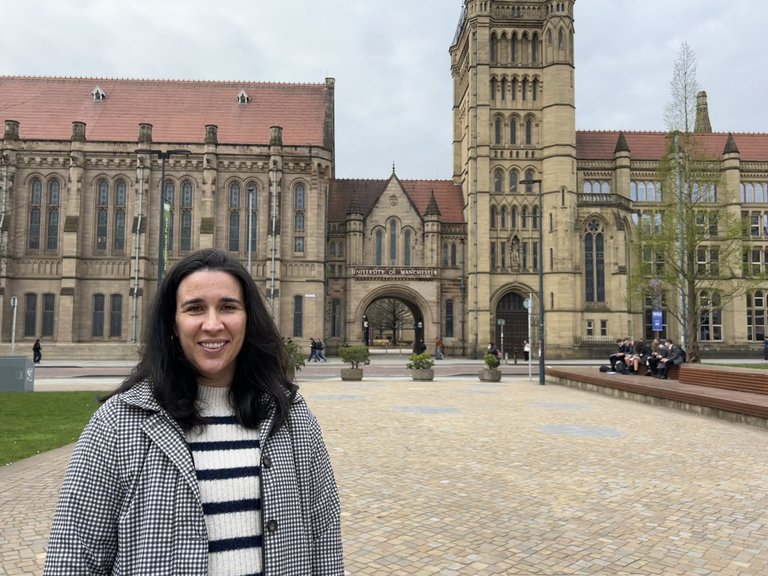“I feel the need to learn more and deepen”

The interview was given by Edurne Redondo Negret from England. He arrived there motivated by the desire to learn new things and to delve deeper into what he already knew, after being in other places, so that, although he is young, he has had a rich career.
Like many other students, he began his career without much certainty: “I’ve always loved science and mathematics, and when I entered college, I chose chemistry because I wanted to do biochemistry. In fact, at that time the university did not have a degree in biochemistry; first it was necessary to do biology or chemistry and then, in the second cycle, choose biochemistry. But I enjoyed my degree in chemistry and we had a very good atmosphere among the roommates. I felt in my place and decided not to change,” he recalls.
After finishing his degree, he moved to Madrid to work as a trainee. “Then I saw a bit of what it was like to work in a company. But I wanted to learn more and I went to Barcelona to do a master’s in polymers”. He subsequently began working as a technician at CIC Energigune, where he was given the opportunity to do his doctorate. “And I saw again that I had to learn more and deepen. So I didn’t have any doubt.” After a moment of silence, he made a clear confession: “I think I like to learn.”
Batteries with tea residues
Thanks to his thesis, he has also been in other places, for example in France and in the Czech Republic, doing postdoctoral studies. He is currently in Manchester at the Henry Royce Institute. “I’m currently researching sodium ion batteries. I cook the charcoal, and right now I'm using tea residue to make the charcoal. After all, the precursor may be any organic residue containing carbon. And since we're in England... for example, I've also worked with olive bones. In fact, by burning organic matter in an inert atmosphere, the result is coal, which is what we use to make batteries.”
Redondo explains that the goal is to obtain replacements for lithium-ion batteries, since lithium-ion batteries require critical materials. Conversely, those used by sodium-ion batteries are much more affordable. They are still at the research level, since they generate less energy, but for Redondo it is attractive that there are still many things to do: “I like to get involved in new projects, learn new techniques or methodologies... I am attracted to everything that is new,” he confesses.
In this sense, he has welcomed the fact that he has moved from one place to another, since each laboratory has its own way of doing things, the way of organizing, the preferences, the instrumentation... “I have learned a lot, not only technically, but also from colleagues and leaders. For example, our leader in the Czech Republic is a very famous researcher who encouraged us to do the hard work. I launched many articles with him and the experience was very good. In other places, we made the articles among many, which lengthens the process a lot, but also enriches the articles.”
Looking ahead, I would like to find something more permanent in England, and if not, I would like to return. “I would like to be involved in research and teaching at the university.” Either way, always wanting to learn.
Buletina
Bidali zure helbide elektronikoa eta jaso asteroko buletina zure sarrera-ontzian












